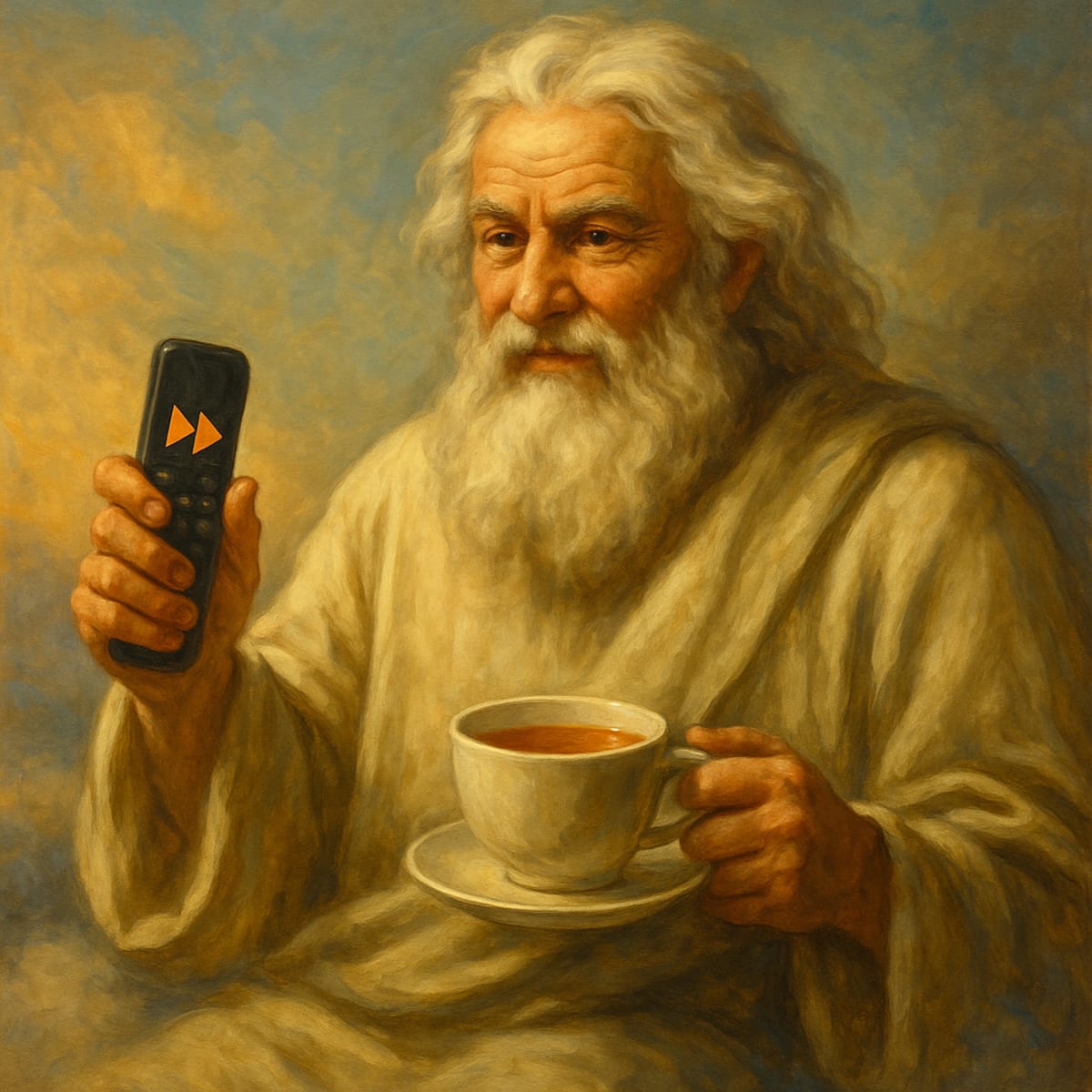By Braam Pretorius
Last night, with a rooibos in hand and internet tabs multiplying like rabbits, I went exploring down one of those late-night tunnels where YouTube, Reddit, and half-forgotten blogs all conspire to feed your imagination.
The ideas I found...wild, but strangely compelling:
- Some believe we live inside a simulation, a reality coded and maintained by powers beyond us.
- Others claim the world ended in 2020, the pandemic was not just a disruption but a cosmic reset, with humanity now stumbling along on a new timeline.
- A few insist that time itself has been altered. Days feel shorter, events stack up faster, and no one can keep up anymore.
And here’s the twist: many of the same people who hold these beliefs also hold firmly to the Bible and God.
So, what if, I thought, God is simply tired of this epoch, and He’s fast-forwarding the tape?
The Simulation Hypothesis
The simulation idea isn’t only internet folklore. Serious philosophers and technologists have written about it. The argument goes like this: if computing power keeps growing, future civilizations could run hyper-realistic simulations of conscious beings. If that’s possible, what are the chances that we are the “originals” rather than one of the simulations?
It’s a neat thought experiment, but here’s the catch: it’s impossible to prove or disprove. For now, it sits somewhere between science fiction and philosophy.
The Prison Planet Story
Another corner of the web paints Earth as a kind of cosmic prison. Humanity is trapped here, cut off from its true potential, while unseen wardens guard the gates.
This is mythic thinking in modern clothes. For ancient people, the world was ruled by gods or spirits; for modern seekers, it’s wardens, aliens, or jailers. It gives suffering a frame, “we’re stuck here because it was meant to be this way.”
Whether true or not, the story works because it gives reason to our chaos.
The 2020 Reset
Here’s a theory I see often: the old world ended in 2020. Life before the pandemic feels like a different era. Borders closed, routines shattered, and even now, nothing has returned to what it was.
Calling it a “timeline reset” is more poetry than physics. But it reflects a deep truth: humanity collectively went through a trauma. And when trauma happens, people need a new calendar, a new way of saying before and after.
The Speeding Up of Time
Now this one I feel in my bones, and maybe you do too. Days blur into weeks, weeks into months. We all say: time is moving faster.
Physics doesn’t agree though, seconds still tick the same way. But perception tells another story. As we age, each year becomes a smaller fraction of our lifetime. Add in modern technology, phones, emails, breaking news, endless notifications, and our brains feel like they’re running on a treadmill turned up two notches too high.
So is time itself shorter? No. Do we experience it as shorter? Absolutely.
Bible Meets Conspiracy
What struck me was how often people mix these theories with faith. They’ll quote scripture one moment, then talk about quantum timelines the next.
Why? Because both give order to disorder. The Bible provides a moral compass; conspiracy theories provide a plot. And if you think about it, the Bible itself is full of cosmic resets, floods, exiles, revelations. Why wouldn’t a believer see 2020 as another chapter in that long story?
Maybe God Is Fast-Forwarding the Tape
Here’s the idea I couldn’t shake: what if God really is tired of this particular period? What if He’s sitting with the remote, thumb pressing the fast-forward button, letting history blur until we reach the next scene?
It’s a playful thought, yes, but also a strangely comforting one. If the tape is running quicker, maybe it’s because the story we’re living isn’t the main act, maybe it’s the bridge leading to a greater chorus.
And maybe that explains why life feels hurried, why days vanish, why years collapse into memory so fast. It’s not just us rushing, it’s God Himself saying, Come on, let’s get through this part and into the good stuff.
My Take
Whether we’re in a simulation, on a prison planet, or riding a fast-forwarded tape, the truth is this: these stories are all ways of coping. They give meaning to disruption, grief, and uncertainty.
And maybe that’s the real lesson. We don’t need to prove or disprove them. We only need to ask: Does this story help me live better today?
If it makes you anxious, set it aside. If it sparks hope, hold it lightly. And if it makes you smile, like the thought of God jabbing the remote, rooibos in one hand and coffee waiting for ten o’clock...then maybe that’s more than enough.
